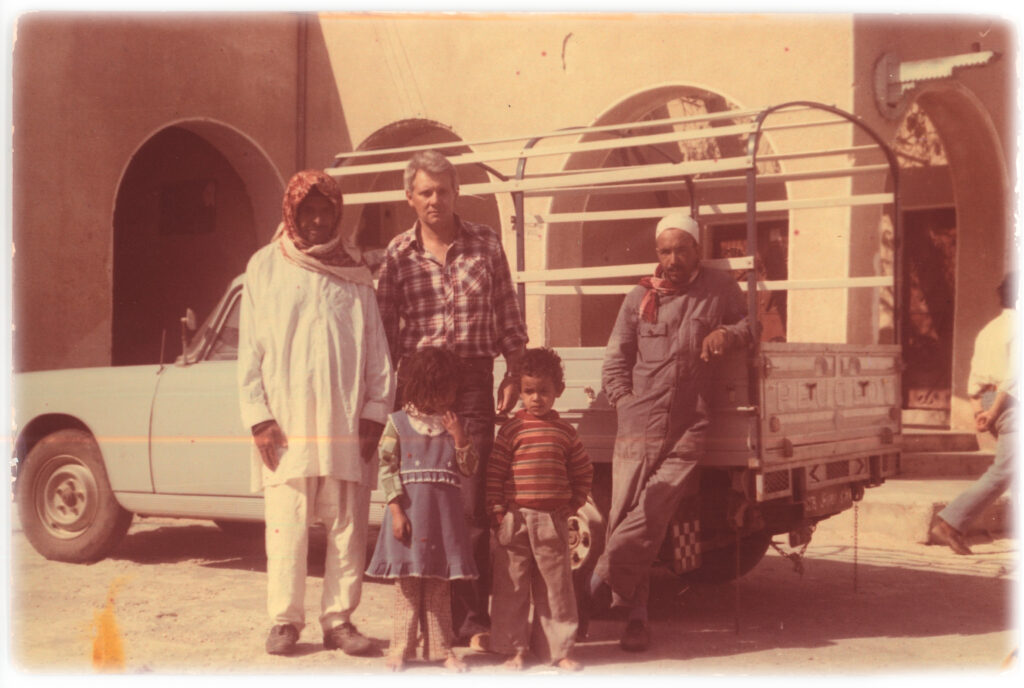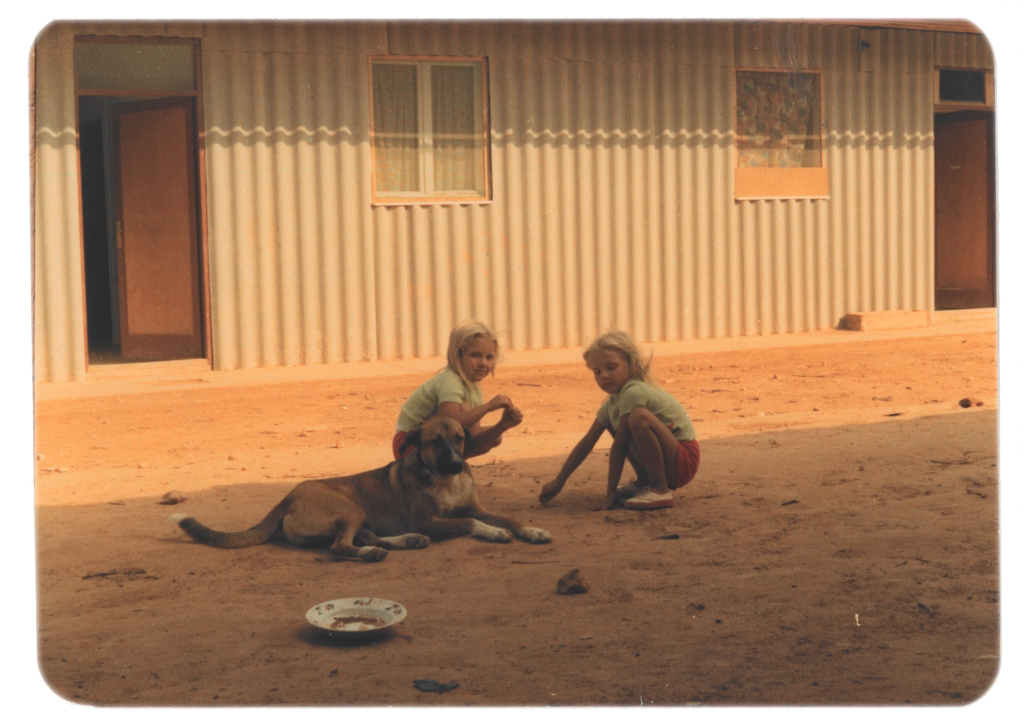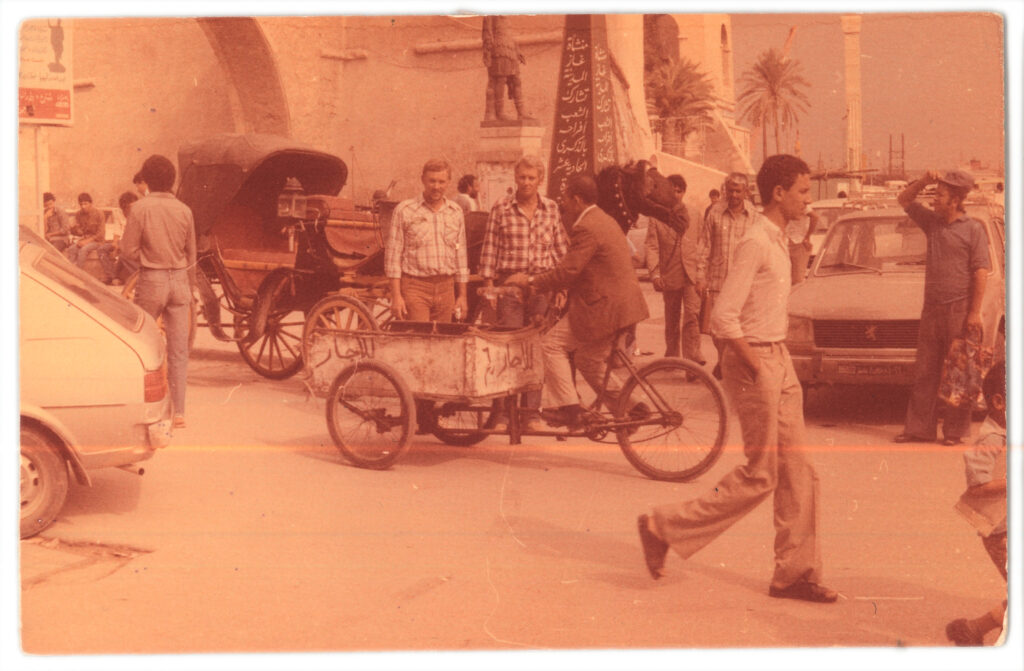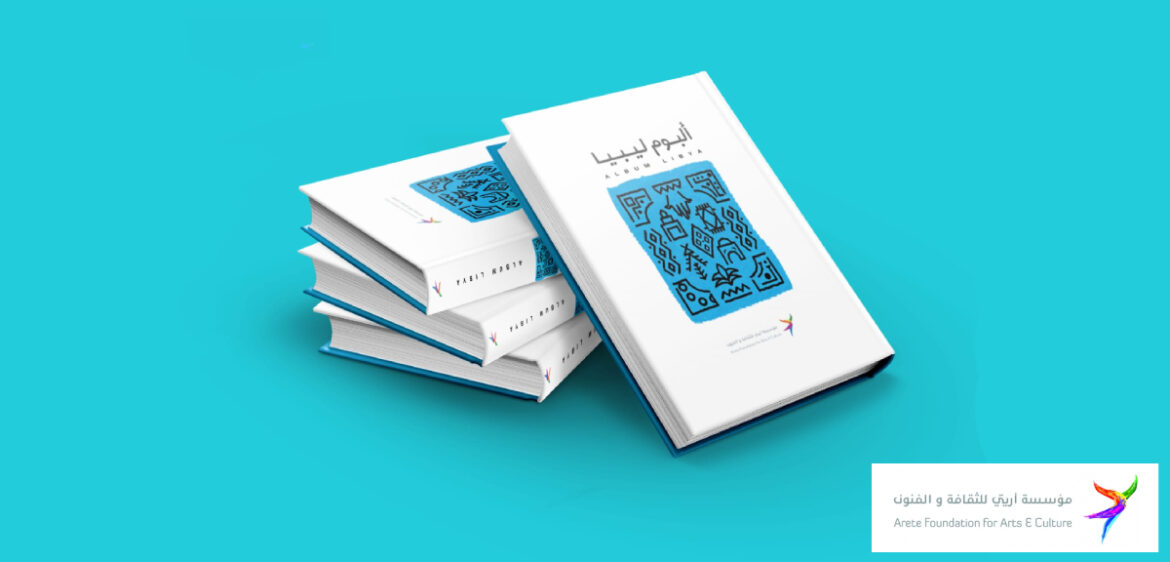Baba
During one of the conferences, while discussing what a perfect place for children looks like, I realised it is like a permanent campsite, where kids can play free, have other children as company, and in the same time have adults within their reach to support them if they are hungry, in trouble or in need of a toilet. Being 6 years old I experienced that kind of perfectness during my holidays to Libya.
I told the story of “baba” first to Khaled Mattawa, a Libyan-American poet, whose poems I had translated into Polish back in my university times. Over 20 years later he asked me to contribute it to “Album Libya” – a collection of memories about Libya published by Arete Foundation for Arts and Culture in the form of a website and printed book. Apart from having very personal touch, it covers a topic of freedom, free play and free discovery, so important for children.
BABA
My family’s Libyan story began over 40 years ago when my dad, like many Polish engineers and doctors at the time, went to work in the country. In 1978, he started a 2-year road building contract, earning him 30 years’ worth the salary he could earn in Poland at the time.
Aged 6, I spent a month there with my mother and twin sister. My father was living in a builder’s compound in the Machili desert, but for our visit he was given family quarters in a camp near Tamimi, closer to civilisation – nearby Benghazi having an airport, shops and a souk.

Previously, as director in a big state-owned Polish company, he remembers field work in Libya as a great adventure, although a bit wild at times, recalling how it was common for Libyans to carry rifles in car boots; stopping locals from driving on newly built roads with unsettled tarmac was a hazardous task.
Visiting Libya was also a great adventure for me. I experienced a freedom and magic previously unknown to me. The camp was like a little fenced village, populated by familiar faces. For the first time in my life I could go out on my own and play the way I wanted, make my own friends. I remember the camp donkey and the dogs, the fascination of playing with dry teabags from the camp’s bins, and the desert dust’s big beetles – things unacceptable to my mother had she ever found out.

I still remember the magic of the cream cheese triangles in the round boxes with their red cow picture, the colourful sweets in the village shop’s jars, or the dead scorpion in a jam jar, given to us Scorpio twins by my dad’s friend, and immediately taken from us due to the threat it contained. The DIY lampshades made of egg trays, I found an absolutely fascinating piece of engineering. The camp shop opened only a couple of hours a day, so there was always a queue outside, to which we – the two white-haired twins – sang happily, conducting and encouraging everyone to sing along.
Most important of all, however, was the time spent with my dad, who I had missed a lot. I remember how he taught me to read and write in Polish right there in the company compound in Libya. The first word he taught me was “baba”, which means “fat woman” in Polish, consisting of the alphabet’s first two letters. Twenty years later, an Arab friend revealed its Arabic meaning to me – “father”. Apparently, my father was playing a little joke on me, and teaching me Polish and Arabic at the same time without my being aware of it, somehow bringing his homeland and the far away country that he grew to like together.

Today, a further 20 years on, looking at a yellow line on a google map – the very same road built by my father and those who he still counts among his friends – I’m writing my memories of my first encounter with Libya, thinking how much has changed since then – in my life, that of my family, and the situation in both countries.
You can find the text in Arabic here.

